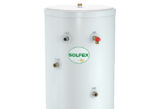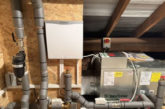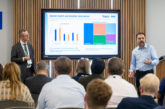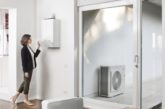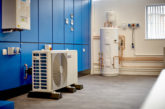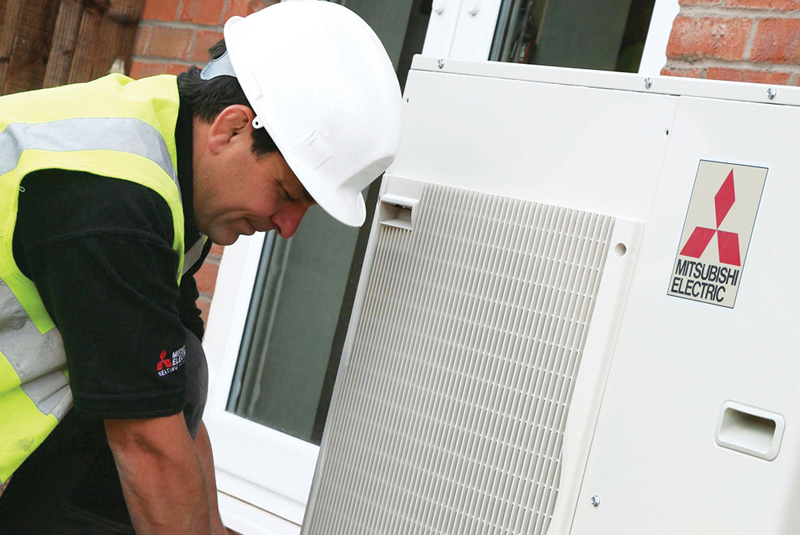
Mitsubishi Electric takes PHPI back to basics on air source heat pumps.
You will have noticed a regular mention in this column of air source heat pumps as a potential new revenue stream for heating engineers but, in case there are any out there who still want clarification on why, we thought we’d go back to some of the most basic pointers.
Why should I add these to my skill set?
The days of gas and oil heating as the default position are coming to an end. There, we’ve said it! The world realises that we cannot continue with the carbon-intensive practices of the past and things have got to change.
Whilst this probably means there will still be a healthy business to be had for the next five to 10 years in these traditional technologies, the future of heating in the UK has been identified as renewable by the Government, which has predicted sales of 1m air source heat pumps a year by 2030. Why would you not want to have the skills, tools and training necessary to future-proof your business?
Is the technology reliable?
You and your customers have already had a heat pump in your homes for decades. It’s called a fridge and it has sat in your kitchen working quietly away for years. Air source heat pumps use the same basic concepts of moving heat from one area to another – using the same types of refrigerant-based technology.
The modern ones, though, have also had a heck of a lot of technological improvements so they are inverter-driven to modulate energy use to match the heating and hot water loads depending on usage and weather. The best ones also come with Smart Controls that can be used over the web from afar, on tablets, smartphones and other devices, giving both the engineer and the homeowner immediate access to any system to interrogate it and report on its performance.
Isn’t there more training and paperwork involved?
Yes, there is if you want to make sure you are doing the job right and delivering the best service to your customers, but this goes for just about anything that can really help your business grow.
The levels of training depend on the manufacturer and also whether you want to be able to offer Microgeneration Certification Scheme (MCS) accreditation to your work, so that homeowners can capitalise on quarterly payments from the Renewable Heat Incentive (RHI) – which is an excellent way of reducing the payback period for systems.
Don’t homeowners worry about cost?
Heat pumps are currently more expensive than gas boilers in general but comparable with, or better priced than, a complete new oil installation and, as the market continues to grow over the coming years, we will reach the volume levels needed to stabilise prices – much as we have seen in the Photovoltaic sector.
As mentioned above, seven years of quarterly RHI payments – and lower running costs – also reduce the payback period, making an air source heat pump a much more attractive, future-proof and viable sales proposition. Add in a Metering and Monitoring Service Package (MMSP) and the homeowner can also receive an additional £1,610 over the course of the RHI.
Finally, the Government is currently considering a scheme which allows full funding of an installation for homeowners, so that they get lower bills for little more than the temporary disruption of changing their system, and the funder then gets the RHI payments.


